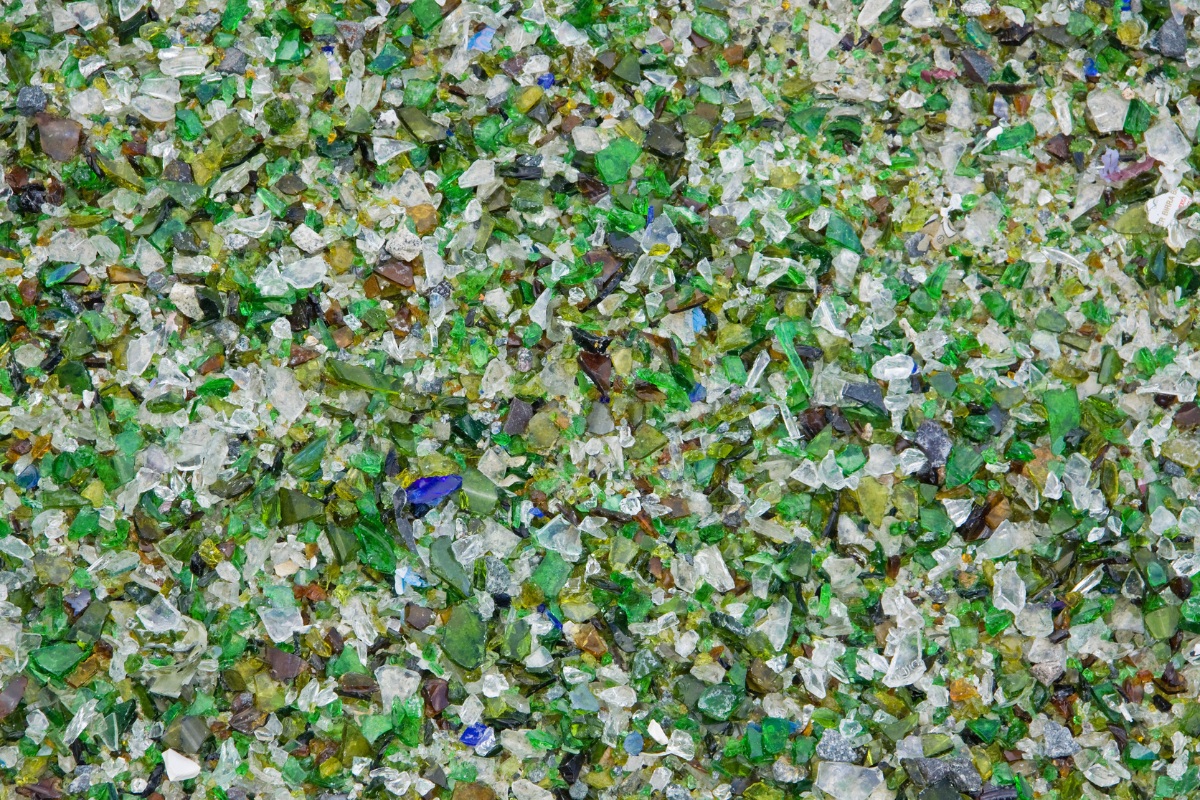
Georgia-based glass container manufacturer Arglass recently announced plans to build its own on-site glass recycling facility to meet its post-consumer cullet needs. | Pjhpix/Shutterstock
One of the country’s newest glass container manufacturers is building its own glass recycling plant to incorporate post-consumer cullet into its new bottles and jars for the first time, a company official said last week.
Arglass, which opened its manufacturing plant in Valdosta, Georgia, in 2020, announced earlier this month that it secured investment of more than $200 million to expand the facility, including a second furnace and an on-site glass recycling plant.
The expansion is the culmination of a previously announced partnership between Arglass and The Upcycling Company, which said last summer that it would work with local restaurants and other hospitality businesses in the region to collect tens of thousands of tons of source-separated glass each year.
It’s also necessary because other sources for the right purity of cullet, such as in Atlanta or Tampa, are simply too far away, said Ron Holmes, who recently joined Arglass as vice president of sales and sustainability.
“In order for us to get the right quality or cleanliness of cullet, we think it’s important to have that in our facility,” Holmes told Resource Recycling. “We want to capture as much of that as we can.”
The recycling facility is expected to come online by mid-2025. Once it’s up and running, Arglass’s goal is to reach 25% post-consumer content in its containers, up from zero percent now, Holmes said.
“If we can increase (that proportion), we will increase,” he added, referring to future post-consumer content goals.
Glass is a common puzzle for community recycling programs, perpetually recyclable and chemically inert on the one hand but cheap, breakable and heavy on the other. One of the country’s major buyers of post-consumer glass, Strategic Materials, recently emerged from bankruptcy after shedding more than $300 million in debt. The company cited glass recycling market challenges, as well as wider economic forces, as factors contributing to the bankruptcy.
But the Southeast has seen notable activity in glass recycling in recent years, including plans for new recycling plants in Arkansas and South Carolina.
Holmes said Arglass’s expansion is a win-win for the environment and Arglass’s customers, which often have sustainability goals of their own to hit. The project will include renewable and hybrid energy generation, a closed-loop water reuse system and other eco-friendly features.
“We are flexible, we are efficient and we are sustainable,” Holmes said. “We are the total package when it comes to it, and we’re very proud of that.”

